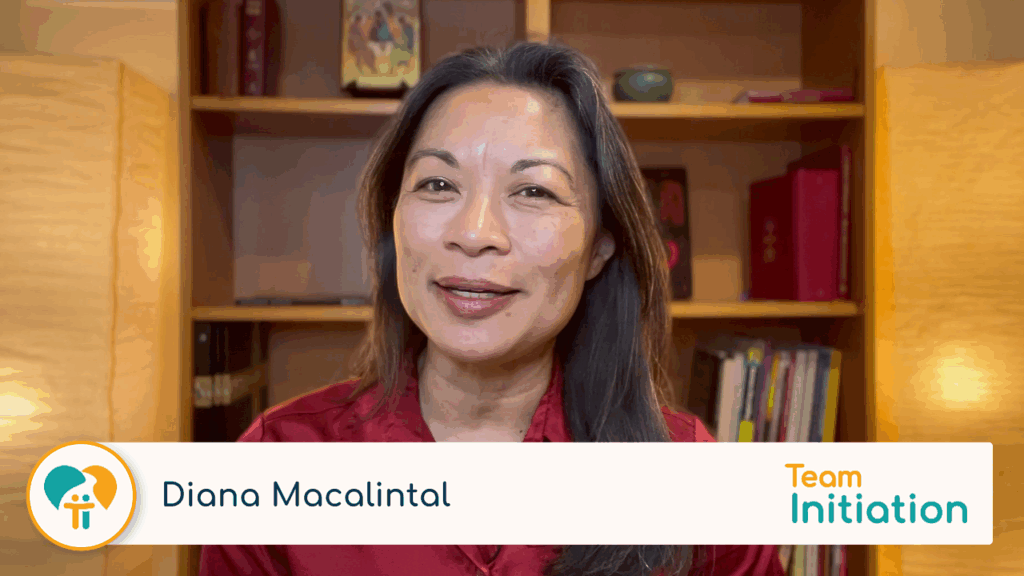Most Sundays, I arrive at church about 30 minutes before Mass. I’ve assigned myself the job of meeting new people until Mass starts. As an introvert, this is challenging, but framing it as my “job” helps me do it.
One Sunday, while greeting people, I met a woman in her mid-30s. When I asked if it was her first time at our parish, she replied, “It’s my first time at church.” Not just our church, but any church. Ever.
I can’t imagine what someone who has never been to church expects when they come in. But, as I mentioned in a previous article, oftentimes newcomers are ignored. What if no one had talked to her? Would she have given our parish a second chance? Or tried a different church? Would it have been Catholic or even Christian? Or was this her only attempt at exploring “religion”?
I introduced her to some parishioners who sat with her during Mass. After a few more conversations, she’s now seriously considering entering the catechumenate.
While the Holy Spirit guides faith journeys, I believe that if no one had engaged with her, she wouldn’t be on a faith journey at our parish today.
In previous articles, we talked about embracing the heart of evangelization and finding and welcoming more inquirers. Now, let’s get into the nitty-gritty. How do we notice and reach out to people like the woman in my story?
Prepare your team
First, prioritize facilitating life-changing encounters with Christ over just running a program. Be spiritually prepared through prayer, reflection, and scripture reading. The more grounded you are in your faith, the more naturally you’ll share it.
Practice sharing your faith story with team members. Use simple prompts like, “When did you first feel God’s presence?” or “How has your faith helped you through tough times?” The more you practice, the more comfortable you’ll become.
Create a welcoming environment
Evaluate your church with fresh eyes. Is the signage clear? Are gathering spaces inviting? Small touches like flowers or welcome banners can make a difference.
Have smiling greeters at doors, but also assign some to wander around before Mass. That’s how I met the woman in my story.
Recognize potential seekers
During Mass, look for people unfamiliar with when to stand or kneel, who fumble with the hymnal, or don’t take communion. Honestly, I just look for unfamiliar faces. Most new people I meet aren’t seekers, but sometimes they are. We must always be on the lookout.
Initial engagement techniques
Approach newcomers warmly and authentically. I simply say, “Hi, I don’t think we’ve met. I’m Nick.” This works wonders. Ask open-ended questions like, “What brought you here today?” or “What did you think of the Mass?” Then, crucially, listen. Really listen.
Remember, every person entering your church is a gift – an opportunity to share God’s love and grow in faith yourself.
Follow-up strategies
If possible, get their contact information – just a name and email or phone number. Follow up within a week with a note or text, preferably by Monday or Tuesday. This simple act can make someone feel valued.
Introducing the catechumenate process
Don’t rush to mention the catechumenate. Build a relationship first. When the time feels right, you might say, “We have a group that explores the Catholic faith. Would you like to learn more?” Be prepared for common questions and concerns.
When introducing the catechumenate, be sensitive to their faith journey. Ask if they have questions about their experiences at Mass or in the parish. If they’re interested, explain that the catechumenate explores Catholic faith at their own pace, without pressure to commit.
Emphasize that it’s a journey of discovery where questions and doubts are welcomed. Share your experience or others’ who’ve gone through the process. Make it sound inviting and non-threatening, a safe place to explore questions.
Create opportunities for conversion
The fourth principle of the catechumenate process is that this is a journey of conversion (see OCIA 4). Invite newcomers to parish events or service projects. These informal settings are great for building relationships. Consider organizing gatherings for newcomers to meet other seekers and team members in a relaxed environment. While these may not seem like conversion opportunities, Jesus is present wherever disciples gather.
Measure and improve your efforts
Track how many new people you’re noticing and engaging with. How many return? How many want to learn more about the faith? Regularly discuss what’s working and what isn’t, and be willing to adjust your approach.
Remember, the first principle of the catechumenate is that it is a gradual process (see OCIA 4). You won’t see immediate results, but with persistence and patience, your parish will become more welcoming to seekers.
Your challenge for this week: Put one of these strategies into practice this week. Maybe approach someone new before or after Mass, or work on your faith story. Try it and see what happens. Share your experiences in the comments below. We can all learn from each other in this journey of welcome.
Remember, every person entering your church is a gift – an opportunity to share God’s love and grow in faith yourself. By creating a culture of welcome, you’re not just growing your catechumenate; you’re living out the gospel call to make disciples. Welcoming seekers isn’t about growing parish numbers or filling catechumenate slots. It’s about being the face of Christ for others. It’s creating a space for people to encounter the living God and begin a transformative faith journey. As you implement these strategies, remember that each person you welcome is precious to God, and your simple hospitality could start a life-changing faith journey. Stay patient, persistent, and open to the Holy Spirit’s movement in your parish community.


















